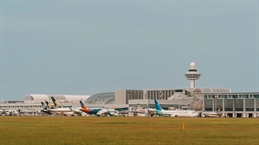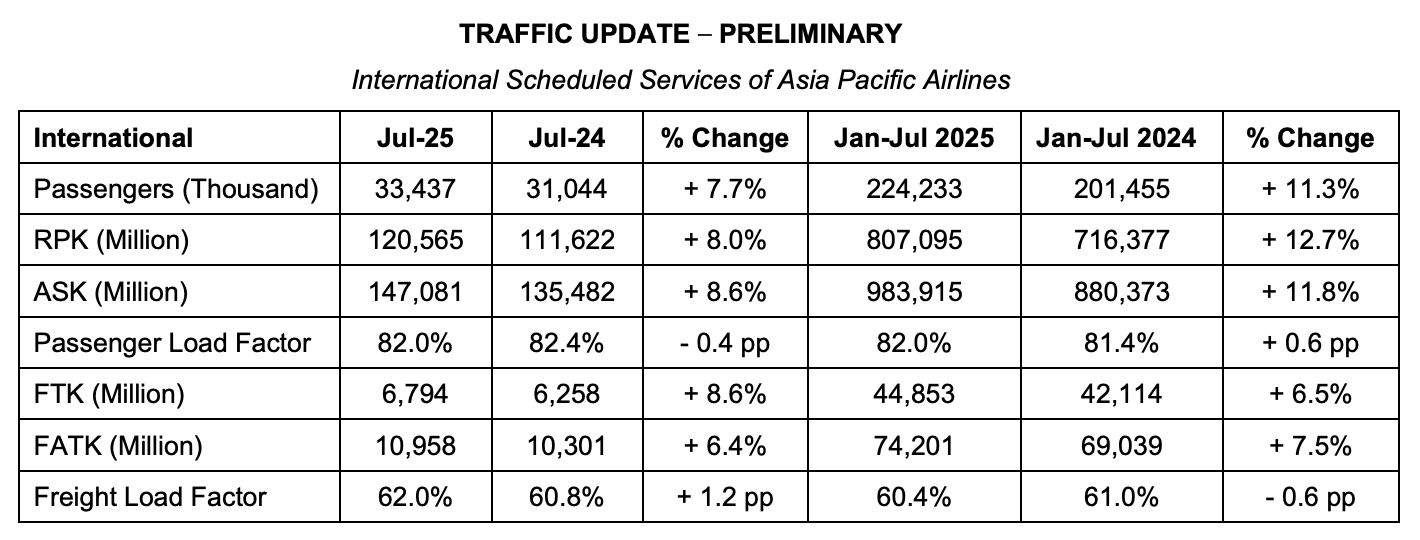
Airlines in the Asia Pacific continued to record cargo growth in July, supported by ongoing front-loading and re-routing of shipments amid prevailing trade-related uncertainties.
Traffic figures released by the Kuala Lumpur-based Association of Asia Pacific Airlines (AAPA) showed that international air cargo demand — measured in freight tonne-kilometers (FTK) — grew by 8.6% year-on-year in July, despite prevailing weakness in global trade flows.
July's 6.8 million tonnes of air freight transported during the month was also higher than the 6.6 million tonnes carried in June and 6.42 million tonnes in May. In April, Asia Pacific airlines carried 6.24 million tonnes of cargo.
AAPA said offered freight capacity was up by 6.4% and the average international freight load factor improved by 1.2 percentage points to 62.0%.

[Source: AAPA]
"During the same period, air cargo demand grew by 6.5% year-on-year, building on last year's strong performance," said Subhas Menon, AAPA Director General.
"Inventory build-ups ahead of the introduction of tariffs by the U.S., along with the rerouting of shipments and diversification of sourcing, contributed to the growth in volumes, as businesses prioritised the speed and reliability afforded by air shipments," he added.
Looking ahead, the AAPA chief said uncertainty surrounding tariffs could continue to weigh on air cargo.
"The global economic outlook remains broadly positive, with healthy forward booking volumes supporting growth in travel markets. However, the implementation of tariffs is expected to add some uncertainty in air cargo markets, and could weigh on future demand," Menon said.
"On the cost side, the 15% year-to-date decline in jet fuel prices to an average of US$89 per barrel, together with the weaker US Dollar against some regional currencies, is helping to offset cost pressures arising from ongoing supply chain disruptions."
"Overall, Asian airlines remain focused on disciplined cost management while pursuing new revenue opportunities to support growth and sustain profitability," the AAPA chief added.



